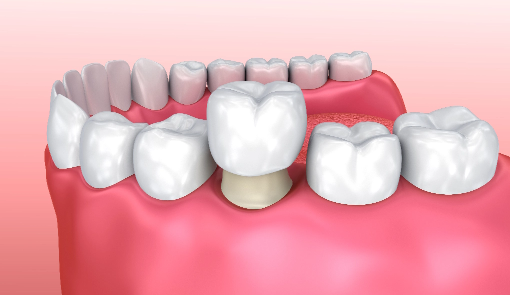
- Services
- / Wisdom Teeth Removal in Jersey City, NJ
Wisdom Teeth Removal in Jersey City, NJ
Your Smile Is Our Priority
Wisdom Teeth Removal Can Help Patients Restore A Comfortable, Functional Smile

Wisdom Teeth Removal Available at Journal Square Dental
Your third molars, most commonly known as your wisdom teeth, are the last set of adult teeth to grow in. Many people’s wisdom teeth will not even begin to show signs of coming in until the late teenage years and can be expected to erupt from the gums at any point between the ages of 15 and 25.
Wisdom teeth are the most common form of tooth to be extracted from the mouth. The large adult teeth occasionally grow in without any problems. More than not, however, the third molars will come in crooked and become trapped in the gums and jawbone. These impacted teeth can cause many problems within a person’s mouth, and having them removed is a good preventative measure to take. Wisdom teeth removal is a very common and fairly quick process that can be handled with ease by a professional, knowledgeable, and compassionate dentist like Dr. Haig Rickerby at Journal Square Dental.
Common Reasons for Wisdom Teeth Removal in Jersey City
More than not, wisdom teeth removal is a preventative procedure to help avoid any future complications with nerve damage or the shifting of your other teeth. Your dentist, during regular examinations, will monitor the growth of your molars and utilize X-rays to predict their projected path. If it looks like your molars are going to become impacted, or if they are already, your dentist will likely recommend they be removed.
When a wisdom tooth comes in impacted, you may notice some redness or swelling at the back of your gums. Jaw pain or lower facial pain can also be common due to the pressure of the wisdom teeth on your nerves. You may even be able to feel the tooth under your gums with your tongue or finger. If left untreated, an impacted wisdom tooth can settle crookedly and cause your other teeth to shift and become misaligned. This can affect your bite, the way you eat, and the way you speak. It can also result in permanent nerve damage.
What Does the Wisdom Teeth Extraction Process Look Like?
Many people who experience the growth of their wisdom teeth will have them extracted. The surgical procedure may look a little different for everyone depending on the severity of their impaction and how many wisdom teeth they have. Occasionally, some people may only have one or two come in, while others have a full set of four. Typically, the extraction process will encompass the following steps:
Examination and Preparation
Your dentist will begin the process by conducting a thorough examination of your mouth and your wisdom teeth. This is the point in the process where you can discuss desired outcomes and any potential risks. From here, your surgical procedure will be scheduled and you will be provided with specific instructions on any eating or drinking limitations.
Wisdom teeth removal is generally performed as an outpatient procedure, which means you go in and come out on the same day. It is important to have a plan of action and someone to drive you home safely, as you will not be able to operate a motor vehicle after your procedure.
Anesthesia and Removal
There are three main kinds of anesthesia typically used for wisdom teeth removal. Depending on your preferences and the level of demand required for your specific procedure, your doctor may use any of the following: local, sedation, or general anesthesia. A combination of local and sedation anesthesia is the most frequently used method when it comes to wisdom teeth removal. This means you will feel no pain and likely have no memory of the surgery.
Once you have been anesthetized, the removal process will begin. Your doctor will make an incision into your gums to expose your tooth and bone. Some bone may need to be removed if it is blocking access to the tooth’s root. For heavily impacted teeth, they may have to be broken into smaller pieces for easier removal. Once the entire wisdom tooth has been extracted, the site will be thoroughly cleaned to ensure all debris has been cleared out. Stitches and gauze may be used to help aid in the healing and clotting process.
Healing Process
Common side effects of wisdom teeth removal include swelling and discomfort. Your doctor will help discuss your options when it comes to food that will be easy to clean and not dirty your exposed gum socket. You will be given pain medication and directions on how to clean around the surgical site area so that your socket does not dry up or become infected.
Slight bleeding is common, as is discomfort. Although, if it persists for too long, it is always best to reach out to your doctor for professional advice. If you were given stitches, they may dissolve on their own after a few days or possibly need to be removed at a later date.
Consult a Dental Professional Regarding Your Wisdom Teeth Removal in Jersey City, NJ Today
Having your wisdom teeth removed is nothing to worry about, especially when you are in the hands of a trusted professional from Journal Square Dental. For over 25 years, we have proudly helped our Jersey City community with all of their restorative and cosmetic dentistry needs, including wisdom teeth removal and maintenance.
For any questions or concerns, please schedule an examination today by using our contact form or by calling (201) 431-0288.
For more contact infomation,
visit our contact page.
Know you want to book an appointment?
Fill out our appointment form.
General Contact

Expertly Reviewed by
Dr. Haig Rickerby, DMD
January 18, 2024
Dr. Rickerby is currently an assistant professor at NYU’s School of Dentistry and has been a member of the American Academy of General Dentistry, National Dental Association, Commonwealth Dental Society, and the New Jersey Dental Association since 1987.
✓ Fact Checked
